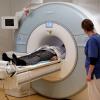Federal government plans primary doctor model: Faster doctor’s appointments by general practitioners?

Appointment at the doctor should be faster. The Union and SPD have made up for this. You want to introduce a « binding primary doctor system with free choice of doctor through home and pediatricians », as the coalition agreement states. In everyday life, this means that a family practice should usually be consulted first before going to the specialist. On the other hand, while the Bavarian General Medical Association welcomes this, the Bavarian Association of Specialist, on the other hand, runs storm and sees the care endangered.
Klaus Holetschek was at the coalition negotiations of Union and SPD involved in Berlin. The CSU parliamentary group leader told our editorial team that the general practitioners can be seen in a « pilot function » so that patients do not hike without a planer from specialist to specialist, Which would often lead to unnecessary double examinations, costs and poorly coordinated treatment. In addition, the family doctor knows the prehistory of patients better, see problems early and can specifically transfer to specialists. « In the best case, it means that the pressure on specialist practices can be reduced and their capacities can be used more targeted than before. » Patients who take the intended path through their family doctor should be guaranteed in return, then to get an appointment with a specialist or alternatively for outpatient treatment in the hospital if necessary.
The primary doctor model could probably start at the earliest in 2026
However, it is important: it should not arise new bureaucracy and the design of the “clear game rules” model is needed for patients, general practitioners and specialists – everyone involved should be at a table, « so that the model also exists the practical check ». There should be exceptions in ophthalmology and gynecology. In addition, practical solutions would have to be found for seriously chronically ill people. If the model is decided, a staggered start can be expected from 2026 at the earliest.
Also CDU health politician Tino Sorgewho is one of the possible candidates for the office of Federal Minister of Health, told our editorial team: « We need more control to keep fast specialist dates for those patients who need the most urgently. Too often, the dates of specialist dates are booked too often, although this does not always make sense. » Nevertheless, it will continue to be possible in the future, according to Sure, to visit a specialist practice directly. « However, this could then be associated with self -employment or a longer waiting time if you have previously noticed the primary doctor’s advice for no reason. »
With a hearing loss, it makes no sense to go to the family doctor first
The ENT doctor and spokesman for the Bavarian Association, Dr. Klaus Stefan Holler, emphasized: « The waiting times for a specialist date, except in Switzerland, are nowhere as short as in Germany. » He also speaks for a « structured patient control », « but on the basis of personal responsibility and voluntariness. We reject state compulsory systems such as the planned primary medical doctor system. This is neither implementable, nor does it guarantee patient safety ». It simply makes no sense that a patient, for example, with a hearing loss, a broken nose or a swollen knee, imagines primarily at the family doctor and then only comes to the specialist. Many patients also know where they are best lifted with which problem.
In contrast, the chairman of the Bavarian general practitioner association, Dr. Wolfgang Ritter, in conversation with our editorial team before sometimes dangerous consequences, when patients run uncontrolled from specialist to specialist: « Unfortunately, we have a fee -controlled health system », which in his view, for example, leads to medically unnecessary operations in many areas. It has been proven by many studies that patients benefited from a primary doctor model. Knight is also certain: « Without a sensible patient control over us general practitioners, the German health system drives to the wall in the medium term. »





:format(webp)/s3/static.nrc.nl/images/gn4/stripped/data133280221-bb4cba.jpg)

